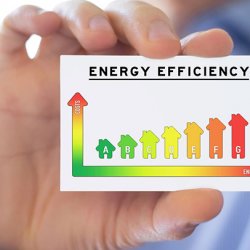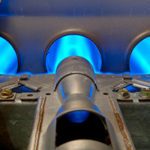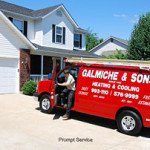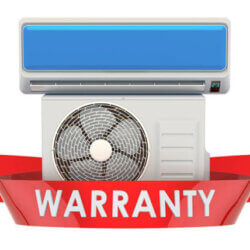The kind of furnace filters you use with your HVAC system can play a big role in the efficiency and overall performance of the heating system. All residential heating and cooling systems with a blower need an air filter to trap the dust, pollen, and other particulate pollutants. Without a furnace filter, these particles could accumulate on other parts of your HVAC system, like the blower or ducts, reducing its efficiency. These pollutants also impact indoor air quality. But furnace filters can be of many types, and they have different filtering capabilities. So it is important to know what kind of filter you are choosing for your heating system.
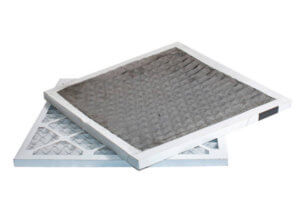
For more help choosing the best filter and keeping your furnace running efficiently, contact the heating and air conditioning experts at Galmiche & Sons today online or by phone at 314-993-1110.
What Are the Different Materials Used for Furnace Filters?
The material that your furnace filter is made of plays an important part in its cleaning capability. The most commonly used furnace filters in HVAC systems are made of pleated paper or cloth. Sometimes spun fiberglass is also used. The filter material is enclosed in a cardboard frame and may be surrounded by a wire mesh to help it maintain its shape.
Fiberglass filters are usually not preferred for a number of reasons. Firstly, they do not decompose in landfills and are bad for the environment. Pleated paper or cloth filters can degrade in landfills, as long as they are not chemically treated or contain other non-biodegradable polymers. Secondly, pleated filters are better at trapping particulate matter compared to fiberglass filters. Pleated filters can trap smaller particles and clog less often. They also last longer than fiberglass filters.
Disposable Furnace Filters vs. Reusable Filters
Disposable furnace filters can be changed every few months and cannot be cleaned. Many homeowners find disposable filters more convenient for this reason. Most pleated filters are disposable filters. But some users prefer reusable filters as they are a long-term investment. Reusable electrostatic filters attract dust and other particles. But they need to be cleaned manually.
Reusable electrostatic filters will last you much longer but are obviously more expensive. A single reusable furnace filter can cost $100. At this price, you could get a full pack of disposable filters that will last you a year. Disposable furnace filters also have better filtration efficiency compared to reusable ones. The main advantage of reusable filters is that your impact on the environment would be minimal as you wouldn’t be adding to landfills. They are also more cost effective over a long term scale.
How to Measure Furnace Filter Efficiency
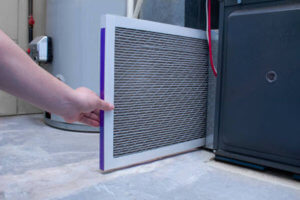
Filter efficiency is indicated by the MERV rating or the minimum efficiency reporting value. The MERV rating ranges from 1 to 16. The higher the MERV, the better is the filter’s efficiency. MERV ratings of 13 to 16 are considered high and such filters can trap particles as small as 0.3 microns. However, most HVAC systems don’t need such fine filters.
Most standard furnace filters for residential HVAC systems have a MERV rating of 5 to 8. They can trap most of the household contaminants like dust, pollen, pet dander, and such. Washable filters typically have MERV ratings between 1 and 4.
HEPA filters are quite efficient and have a MERV rating of 17 to 20. But they are usually not suitable for residential use as they are too dense and can actually obstruct the airflow in your HVAC system.
With the many different options available, it is best to consult an HVAC professional before you get a new furnace filter.
Hire a Reliable HVAC Contractor in St. Louis
If you are thinking of changing your furnace filter or need to get it cleaned thoroughly, contact a reliable HVAC contractor. Galmiche & Sons has been in the HVAC maintenance business in St. Louis since 1950, and we are experts when it comes to filters and all things HVAC.
Get in touch with our heating and air conditioning experts to learn more about how we can help.



